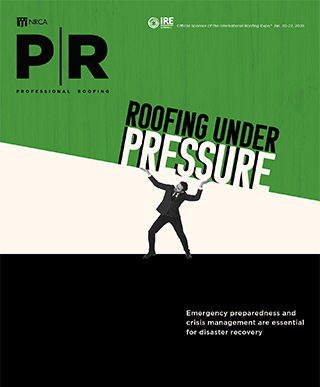"Executive development is … about bringing new knowledge, new practices and new thinking to the challenges of the
day."
—Idalene Kesner, Harvard Business Review
Idalene Kesner's quote sounds good, but implementing anything new takes time. And time, as you know, can be the enemy. It's always poking at you, sometimes painfully. This raises the questions: Does it have to be this way? Can time work for you? And if so, how?
Test yourself
To answer these difficult questions, it takes some self-reflection: How are you currently spending your time?
I challenge you to assess your day. For a full workday, set an alarm for every 20 minutes beginning at 7 a.m. (You can set a vibration alarm on your cell phone so you can keep this effort to yourself.) Each time the alarm goes off, make a brief note of exactly what you're doing. Be honest and quick. This will not be easy to accomplish; even if you miss a few alarms, keep going.
The next day, look at your list. At first glance, it may reveal you accomplished quite a lot of things, such as making phone calls to clients, solving problems for staff, closing sales, etc. You may even feel a bit of pride at how efficient you are at completing items on a list. You also may see you spend too much time talking on the phone, addressing staff issues or evaluating estimates, for example. And you may feel a bit exasperated if you're not as time-efficient as you'd like.
Let's break it down more. Take another look at your list and cross out anything that is task-centered. In other words, cross out anything that involves a business-type activity: authorizing payroll, solving a problem, reviewing or completing a bid, profit-and-loss review, etc. These are the working "in" the business items. It would not be unusual if all the items on your list were crossed off.
Now see whether there are items such as spending time at job sites getting to know your field staff; having conversations with staff members about why your company matters to you and how that relates to the way things are done; understanding why mishaps occur versus assigning blame; and encouraging smart thinking even if the outcome is less than optimal, etc. These activities typically are not found on these lists and the culprits usually are time and lack of awareness.
In other words, how much of your day is spent working "on" your business? How often do you think about its future? What are your plans for your business? Is there a vision to share? And why do you care about it in the first place? You may think you don't have time for such things or it's a luxury you just cannot afford.
Again, look at your list. Are there themes to your activities? For example, are they centered around sales, staff issues, financial reports, etc.? Understanding what role you or other leaders in the company are playing is the focus. If your role is CEO: Are you looking at filling in gaps, or are you playing the role of a CEO? What should the role of CEO look like in your company? Having a clear understanding of roles and playing them well are key factors for providing stability throughout the organization. Does your organization understand how each role has an "in/on" component to it? What does "on" look like for each?
Becoming self-aware
Too often, activities solely are focused on getting things done and have no other real purpose. Consider for a moment the nature of a roofing contracting business is to provide a service. Providing a service means you have to sell that service; complete the service on time, safely and meet specifications within budget; make sure customers are satisfied; use materials efficiently; and follow laws, regulations and codes. The list is never-ending. And let's face it, if you don't do all these things well, it costs you time, which translates to money and way too often into more time- and money-related drains when not done well or efficiently.
And if you don't do these things well, you won't be in business long. However, without having long-term direction, an organization drifts. The conundrum is by the time "it" is a problem, it is seen only in the context of its related activities. In other words, if the problem is sloppy workmanship and a leak occurred, you make sure the leak is fixed. Problem solved. What happens when it occurs again? You start looking for a pattern to the leaks. You might, for example, ascertain they're all on Harry's jobs. You pull Harry aside and talk to him about what's happening with the intent of improving his performance. Things improve, and the problem is solved (again).
But what happens when it starts again? Too often, it's still "lather, rinse, repeat." How can you think about this differently?
We all get into these cycles. The problems themselves aren't the issue; rather, it's a lack of awareness of other ways to unlock new perspectives and ideas to address them. The exercise regarding time is meant to show you how you spend your time and encourage you to examine whether you're spending that valuable currency well.
Interestingly, this dilemma occurs not only at the top of the leadership pyramid but also is keenly realized toward the bottom with foremen. When The Roofing Industry Alliance for Progress hired The Gallup Organization in 1997 to conduct two surveys concerning employee satisfaction in the roofing industry, one of the findings was foremen were the most dissatisfied with their jobs. Also cited were a lack of overall training and field workers are less likely to receive feedback, encouragement and praise or have a supervisor who cares about them as compared with other occupations. NRCA's Education Operations Committee knew there had to be more NRCA could offer to train foremen.
The study reminded me of my first managerial role and how, in retrospect, I initially struggled. For example, I recall reprimanding a staff member. When I told him what he did wrong and how to do it correctly, he left insulted, demoralized and in worse shape than before. I remember feeling so frustrated that he didn't understand. I ended up terminating his employment for incompetency reasons, but I was aghast at how hurt he was. He said I never tried to help him, he worked hard and I didn't care about him. I knew that couldn't be further from the truth. But I did not handle the situation well.
What I realized was I had to switch from focusing on tasks to focusing on people. It was not easy, but as I changed my focus, my job satisfaction went up and other metrics started falling into place.
Academia can help
When roofing company executives face situations like this, looking deep into issues from an academic standpoint can help. For example, NRCA's Executive Management Institute (EMI) is for seasoned roofing executives and provides high-level concepts to real-world roofing industry problems.
"The benefit of executive education is it allows business leaders to focus on identifying and setting specific goals, encourages self-awareness and leadership development, provides a platform to facilitate networking and exchange among peers, and instigates for many a frame of reference change. Executive education remains one of the key means to achieve transformative change," says Bettina Buechel, professor for the International Institute for Management Development.
"Participating in NRCA's EMI class has helped me better define the experience and work more on tomorrow than today. When I left the class, I knew what I wanted and needed to do," says Jack Scalo, owner of Burns & Scalo Roofing Co. Inc., Pittsburgh.
Do you have the time?
Actually, you do! It's a choice. Time can work for you in a much different and better way, but the difference is having the perspective to see that possibility. So the question you may be asking is: What time do I have to invest in executive education to gain this perspective?
There are a lot of answers, and there's no right one for everyone. But what NRCA finds from its leadership programs is you don't have to be enrolled in a full-time business management school to get value from the time and money invested in industry executive programs.
But be wary of leadership offerings that talk about improving the bottom line or other metric-type results. These are focused on results and tailored to address management issues. Leadership programs address your ability to tap into and understand why you care about what it is you do so you can communicate it effectively to others.
Another consideration is the cost and time spent away. Single-day classes can cost $500 or more, and multiday programs can cost $5,000 or more. Some of the checklist items to consider are: program length, instructor pedigree and experience, program content and industry applicability. I believe multiday programs are better because you can become fully immersed in the program. It is worth the effort to speak to people who have been through the program or been taught by the instructor(s). On balance, you tend to get what you pay for; quality may come at a greater expense, but it is worth it to see long-term results.
Spend the money, make the time
During the many years I've spent developing, teaching and seeing how executive education transforms people from managers into leaders, I am convinced it is the most important investment a person can make for his or her career and organization.
"Executive education taught me to stop deluding myself. It was eye-opening and something I found invaluable. I'm still challenged daily with finding time, but to be an effective leader, I have to 'walk my talk' and run the business so it doesn't run me," says Lisa Sprick, president of Sprick Roofing Co., Corvallis, Ore.
Executive education is about understanding the options between working in a business and learning how to work on a business. It's fun. It gives you stories to share. It gives you reasons to say "no." You hear and see your business operate in a way you never thought possible. That's what time well spent and executive education can do for you.
Tom Shanahan, MBA, CAE, is NRCA's vice president of enterprise risk management.



